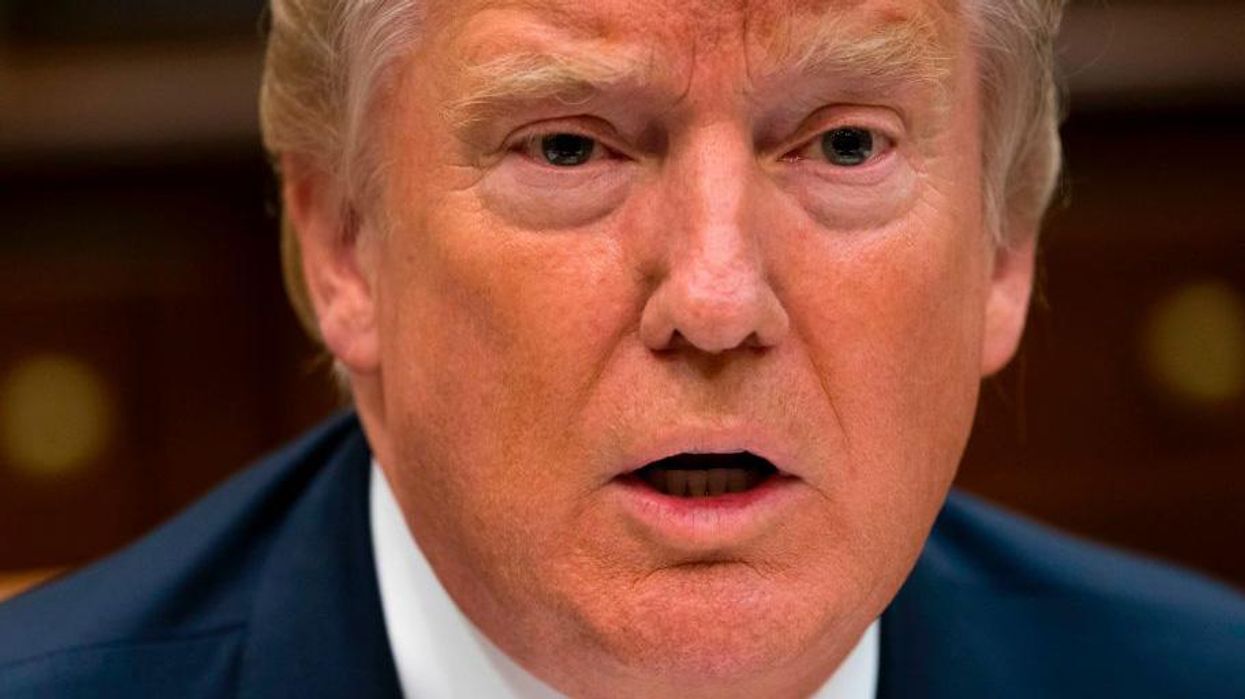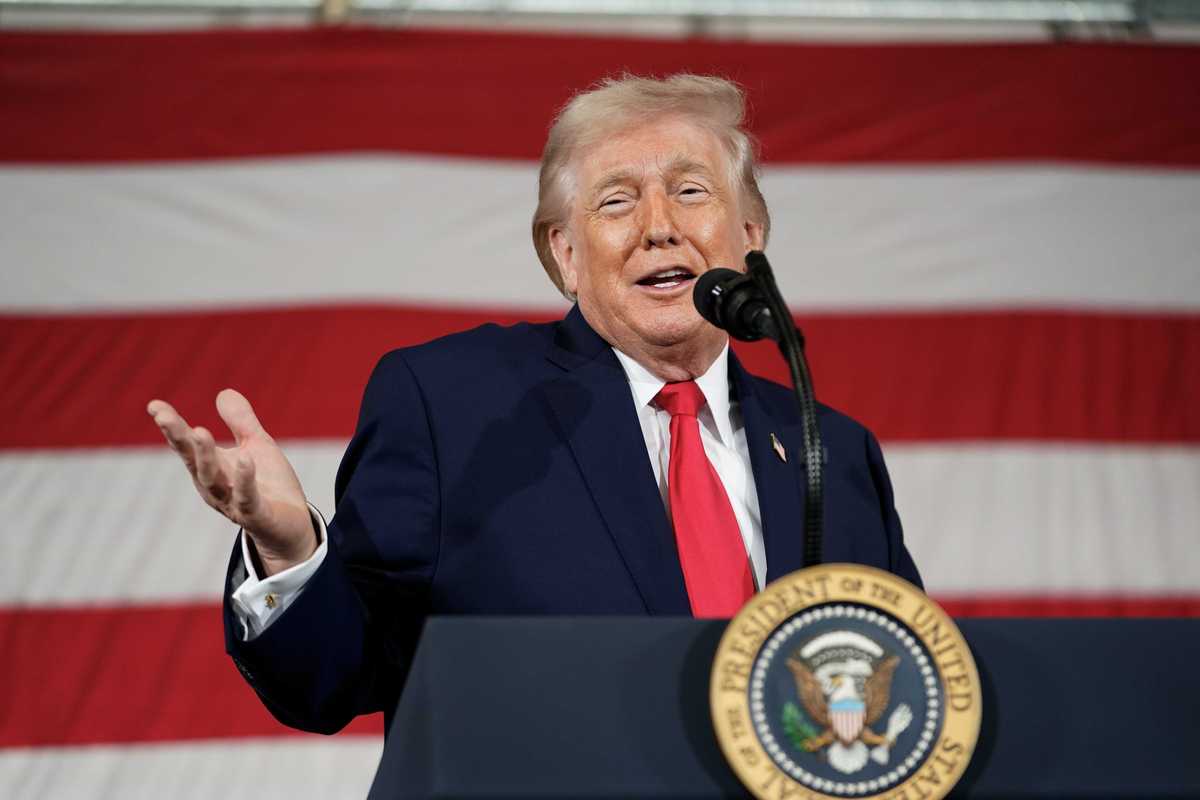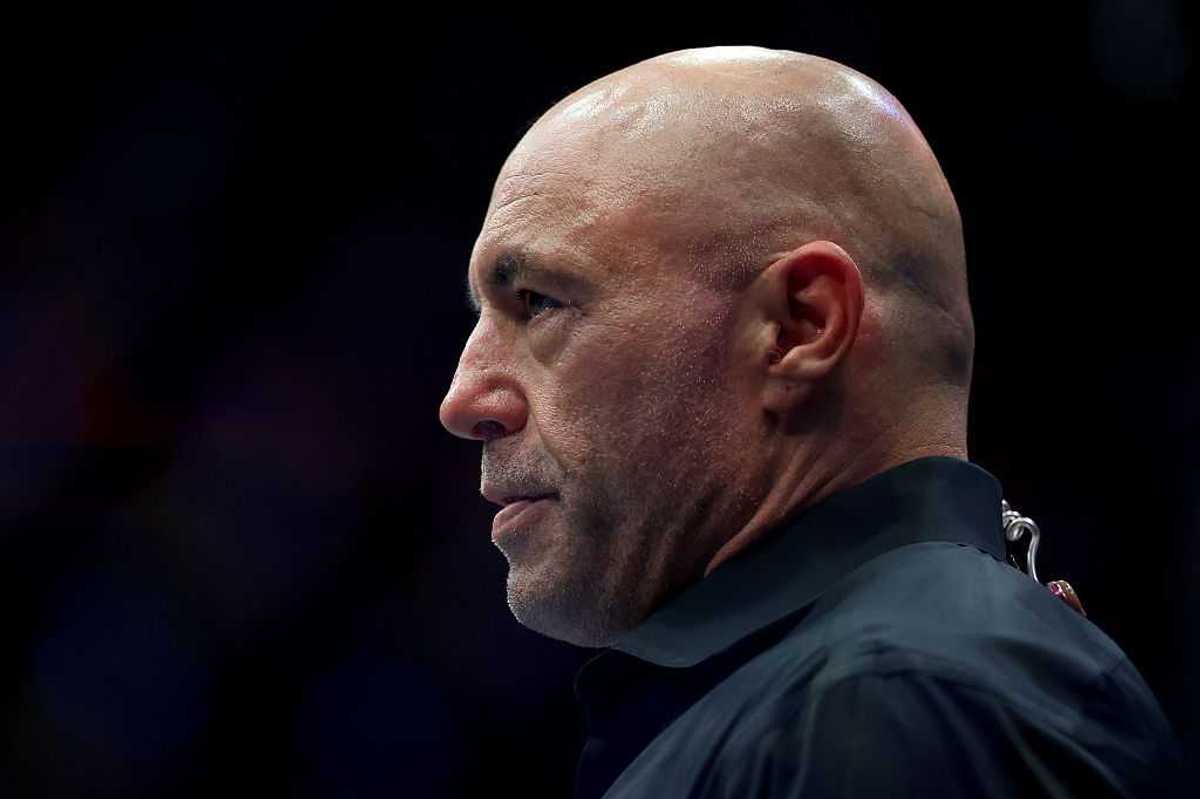News
Greg Evans
Jul 23, 2017

Picture:
AFP/Getty Images
On Saturday Donald Trump tweeted about speculation that he may attempt to pardon himself, his aides and family members.
The lawyers of the US President, The Washington Post reports, have been investigating routes that could undercut the probe against him lead by Special Counsel Robert S. Mueller III, which is looking into his connections in Russia.
The report claims that he has been asking his advisers about pardoning powers, however different unnamed individuals in the story admit that Trump has only expressed curiosity, while another says that only the advisers have discussed it among themselves.
In a tweet Trump did suggest that he had powers to pardon but didn't specifically say whom he could pardon or what for, later deflecting it as 'fake news'.
Barack Obama's former ethics lawyer Norman Eisen has stated in an open letter for the Washington Post that Trump cannot pardon himself should he seek to do so, as reported by The Hill.
Eisen, along with Harvard Law professor Laurence Tribe and George W. Bush's chief ethics lawyer, Richard Painter, writes:
But there is one thing we know that Trump cannot do — without being a first in all of human history.
He cannot pardon himself.
The Constitution specifically bars the president from using the pardon power to prevent his own impeachment and removal.
It adds that any official removed through impeachment remains fully subject to criminal prosecution.
That provision would make no sense if the president could pardon himself.
Since the publication of the Post story John Dowd, Trump's defending attorney has told CNN that these allegations are "nonsense" adding:
The President's lawyers are cooperating with special counsel Robert Mueller on behalf of the President.
Although it remains to be seen whether Trump will investigate these powers it appears that the laws on pardoning are broad and complex.
In the aforementioned CNN report they state that the Constitution reads:
[The President] shall have power to grant reprieves and pardons for offences against the United States, except in cases of impeachment.
This would suggest that he does have the power to pardon himself in protection against federal prosecution but he would lose that if he were to be impeached
However, an even bigger revelation could be at hand here.
By expressing an interest in pardoning Trump could be admitting that he or others are guilty.
This takes us back to a case in 1915 of Burdick vs. United States, where the grand jury investigated if a Treasury Department employee, George Burdick, had leaked information to the press.
Then President Woodrow Wilson granted Burdick a pardon but he refused it as accepting a pardon carries an imputation and an admission of guilt.
The following is an extract from said cases judgement which defines the difference between a pardon and legislative immunity.
This brings us to the differences between legislative immunity and a pardon.
They are substantial.
The latter carries an imputation of guilt; acceptance a confession of it.
The former has no such imputation or confession.
It is tantamount to the silence of the witness. It is noncommittal.
It is the unobtrusive act of the law given protection against a sinister use of his testimony, not like a pardon, requiring him to confess his guilt in order to avoid a conviction of it.
Gerald Ford used this example when pardoning Richard Nixon in 1974, meaning that Nixon had to firstly confess his crimes before being absolved.
Therefore if Trump wished to use the power to pardon, he would have to admit to his crimes before doing so.
Top 100
The Conversation (0)













